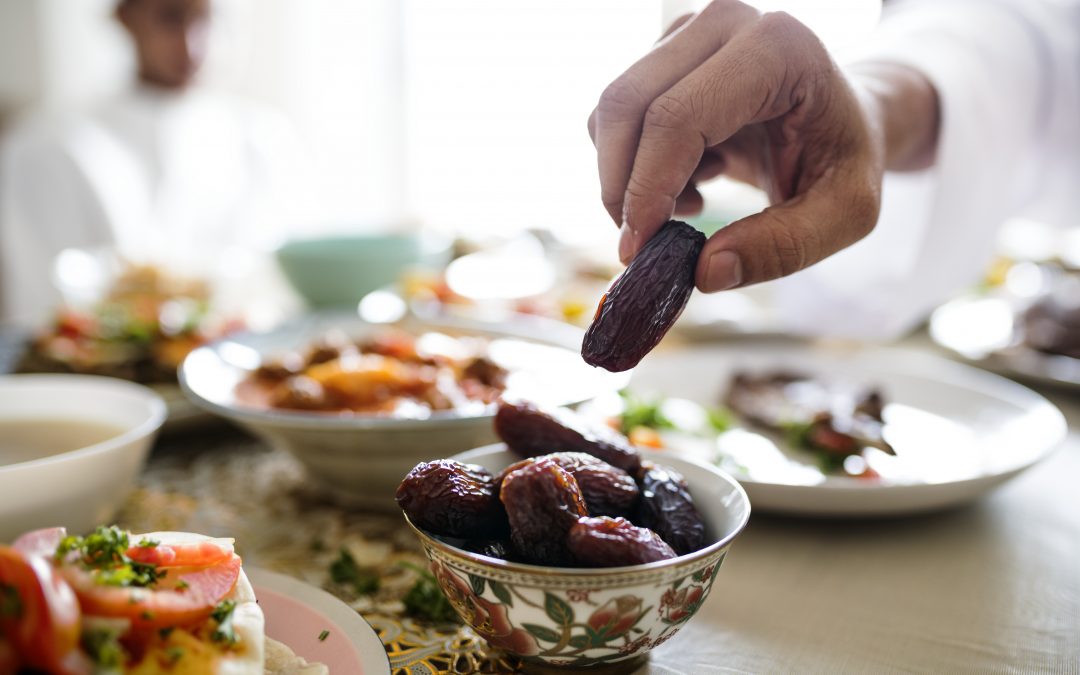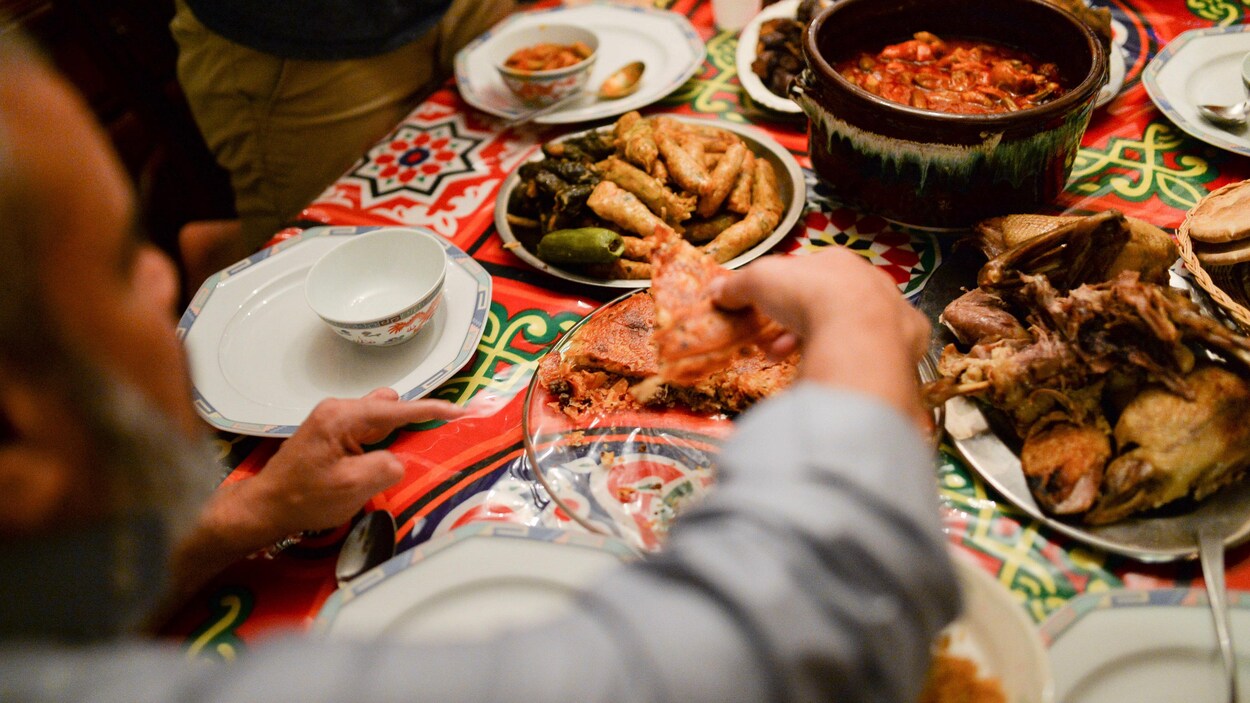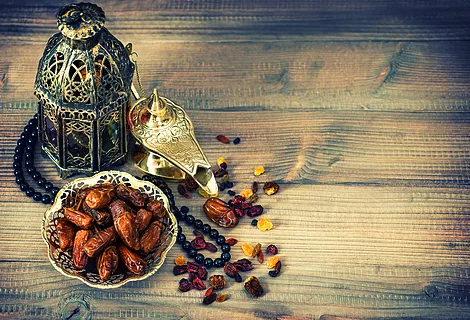pascal nourtier
Nutrition and RAMADANNutrition and RAMADAN
Before or after Ramadan, a lot of patients consult Pascal Nourtier, nutritionist in London, in order to lose weight. Losing weight during Ramadan without feeling exhausted is possible if you follow instructions of a nutritionist.
Nutritional balance during Ramadan
Fasting during the month of Ramadan is one of the five pillars of Islam, so it is a very important thing for Muslims. During Ramadan (which is the ninth month of the Islamic calendar), Muslims do not eat or drink anything between dawn and sunset. Fasting Ramadan without precautions can cause health problems and might disrupt your eating habits and result in an uncontrollable weight loss or weight gain. I will share with you everything you need to know in order to manage your dietary balance during the month of Ramadan
Eating in Ramadan: How often ?
Eating during Ramadan is completely different from the regular pace of eating. As a matter of fact, Muslims eat in different hours during Ramadan since they cannot eat between dawn and sunset.
Three meals are allowed in Ramadan:
- The Iftar, is when Muslims break their fast, which is at sunset;
- The Ichaa, is an optional meal, eaten few hours after Iftar generally if Iftar was not a heavy meal;
- The Suhoor, is a pre-dawn meal, eaten to keep Muslims fasters full and energetic for the day ahead.
How to manage your Nutrition during Ramadan
The first advice to maintain a balanced nutrition during Ramadan: do NOT snack all night long. Instead, divide your eating schedule to 2 or 3 meals. Each food group should be consumed during your eating time: Proteins, starchy food, fruits and vegetables, dairies, carbohydrates … while making sure to pick the healthy option in each group. For example, go for complex carbohydrates (whole grains, beans … etc.) over simple carbohydrates (pastries, cakes, sodas … etc.).
Surely Ramadan is a pleasant time of conviviality where meals are often shared with family and friends, but it is necessary to avoid eating middle eastern pastries all the time and other pastries to not have an unbalanced nutrition.
It is also very important to stay well hydrated in Ramadan, especially when it is during hot weather days! Drink lots of water and eat hydrating food such as cucumbers, tomatoes, or watermelons. Choose water over other beverages that are based on caffeine, or diuretic and can enhance dehydration.
People with diabetes should be very careful during Ramadan: Type 1 diabetes cannot fast, type 2 diabetes should consult their doctors and watch their blood sugar level constantly during Ramadan.
However, if you feel an extreme fatigue or a lack of well-being despite all these precautions, do not hesitate to break your fast. It Is very recommended !
What to eat during Ramadan ?
The composition of meals is very important during Ramadan, to provide your body with all the nutrients it needs to be well prepared for fasting which is approximately 15 to 16 hours.
When breaking fast, it is important to drink (preferably water or tea) to rehydrate your body, especially in summer. Don’t eat too fast and don’t overeat: the body needs to get used to eating after a long fasting time. So, it is important to start with a light dish, like a salad or a soup, and take your time before starting to eat the main dishes.
What to eat during Iftar?
To replenish your body with vitamins and minerals, Iftar meal needs to contains these elements:
- Slow-release carbs (whole grains … etc.) and oilseeds or dry fruits (dates, dried apricots, almonds, nuts, hazelnuts … etc.) to give the body the energy it needs.
- Proteins (meat, fish, eggs, lentils, cheese …etc.);
- Fruits and vegetables, rich in vitamins and fibers that the body requires.
The meal usually ends with traditional pastries. Don’t overeat them to avoid belly bloating and stomach irritations.
Iftar should not be too heavy so it doesn’t disrupt the body or even cause insomnia.
Here is an example of what to eat for Iftar:
- Start with a salad of hydrating vegetables (cucumbers and tomatoes) and olive oil;
- Green vegetables, steamed vegetables or cooked in tajine, along with chicken or fish.
- A piece of fruit and a pastry of your choice.
What to eat during Suhoor ?
Suhoor is the meal that provides you with the necessary food that you need to stay energetic during the day. So, your meal needs to contain these elements:
- Proteins (meat, fish, egg)
- Fruits for vitamins
- Slow-release carbs for energy
- Fibers (whole wheat bread, oatmeal …etc.)
- Dairies (yogurt, cup of milk)
Here is an example of what you may eat for Suhoor:
- 2 Hard boiled eggs
- 1 yogurt and dry fruits (in moderation)
- Whole wheat bread and almond butter
- Fruits
How to lose weight during Ramadan
Some people could easily gain weight during Ramadan, despite the fasting and the reduced number of meals allowed. In fact, fasting for a long time can make you hungrier and can make you out of control when you eat your meals. In addition to that, your metabolism slows down during Ramadan, which can cause you a weight gain by the end of the month, when you start eating normal again.
There are a lot of good tips that can help you lose weight during Ramadan:
- Plan your meals to avoid eating whatever you find, and watch your portion sizes;
- Drink plenty of water first thing when you break your fast, to prepare your digestive system;
- Eat your Iftar as early as you can to give enough time for your body to digest that food before going to sleep;
- Eat fats and sugars preferably in the morning meal (Suhoor), as they will be stored less in your body than eating them during iftar in the evening;
- Eat slowly, chew your food well and eat lots of fibers and slow-release carbs. That would help you feel fuller;
- Sleep well to better endure the fast (a minimum of 7h per night);
- Avoid smoking: nicotine causes weight gain.
By the end of Ramadan, these habits should be maintained and adjusted to the normal schedules of daily meals, to not disrupt your body too much and also to avoid gaining a lot of weight.




